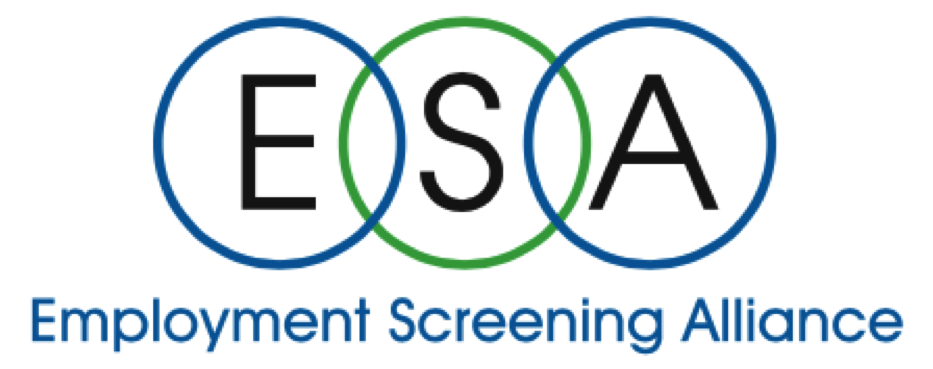
by Employment Screening Alliance | May 25, 2016 | employment background check
Employment Background Check | How to Become a Resumé Reviewing Pro Pt. 1
Employment Background Check | Don’t worry. I know exactly what you’re thinking.
Surely in this day and age resumés are becoming obsolete! I mean who even has a CV these days anyway?
But for all those business owners and hiring managers out there working in organisations or industry sectors where LinkedIn profiles or social footprints may not be as relevant or as common as a good old hard copy CV, this one’s for you! Please read on more from our employment background check.
Now I can’t even begin to think of how many thousands of resumés I’ve scanned in my time. You do the math … 20 years … often up to 90 applications per job ad …
OK stop. That’s a lot of trees (yep – even today the majority of recruiters and hiring managers still like to print out a candidate’s resumé. Go ahead and ask them!)
So how do the pros review the barrage of CVs after the tsunami of applications hit their inboxes?
The Pile Splitter
I interviewed a recruiter many years ago who placed people into call centre roles. She would be inundated with CVs for every role she advertised. Apparently her theory was quite simple. Each day she would wait for all the applications to come in. She’d make a pile of CVs on her desk and then split the pile in two. She only screened the bottom half and she dumped top half straight in the shredder bin. [In case you’re wondering … I didn’t hire her].
Residential Bias
Many hiring managers are obsessed with knowing where a candidate lives. This is why most recruiters will typically remove the candidate’s address from a CV before sharing it with their client.
Oh … she lives there! There’s no way he’d travel in from that far!
If somebody wants a job and they’re prepared for a long commute, then please don’t judge someone on where they live. Unfortunately because so many candidates put their address at the top of their resumé, residential bias (as I like to call it) is rife!
To Whom It May Concern:
I have to admit I have been guilty of this one myself. There were times when I would be swamped with CVs and cover letters. If I had made it clear in my job ad that all resumés should be addressed to Paul Slezak, then if I received a cover letter that said “To whom it may concern”, well unfortunately I didn’t even read the cover letter let alone the CV behind it.
That’s what I would call resumé skimming at its fastest!
Say Cheese!
Right up there with ‘residential bias’, are employers (and recruiters too!) looking at a candidate’s photo (if they’ve decided to include one) and letting a mug shot lead the decision making process.
Assuming the majority reading this blog post aren’t recruiting for a modelling agency or a prime time television network, then a candidate’s photo should be the least of your worries.
Virgo or Sagittarius?
If it’s included in the resumé, a candidate’s date of birth is also somewhere the hiring manager’s eyes will gravitate pretty early on.
I used to think this was related to age discrimination. But over the years I have learned that quite often it’s not theyear of birth that’s being scrutinised at all. It’s actually more the day and month.
Believe it or not there are people out there who build their teams based entirely on ‘zodiacal compatibility’! There you go – no need to even read the CV. Better yet forget engaging a recruiter! Just hire consulting astrologer! -Recruit Loop
Continue pt.2 on next blog for more employment background check..
Learn what ESA can do for you! Call 866-830-3724 to discuss employment background check services or complete the form on www.esascreening.com now!

by Employment Screening Alliance | May 23, 2016 | employment background check
Employment Background Check | The Importance of Reference Checking
Employment Background Check | In recent years, the concept of reference checking hasn’t only been thrown around HR departments and recruitment agencies. It’s even hit the mainstream media. Last year in Australia we learned about the scandal involving one of its largest retailers and a bogus reference check. And of course there was the Yahoo! scandalthat hit the press a few years ago.
Conducting reference checks is an absolutely vital part of any recruitment process. And no matter how amazing a candidate may be on paper, and regardless of how impressive they may have been when you interviewed them, no recruiter should ever let the reference checking process slip through the cracks.
Why do we reference check?
It’s pretty obvious that reference checking allows us to obtain independent information about our candidates’ previous on the job performance.
The information we gather during a reference check is directly related to the key selection criteria of the role they have applied for and allows us to validate the information provided by the candidate at the interview.
Referencing also allows us to identify ‘grey areas’ from the candidate’s CV or from their interview such as the reasons they may have left a past position.
It’s frightening to think of the number of recruiters who will actually rely on the feedback gained from a 2-minute phone conversation; or who might make a placement without even carrying out any reference checks at all.
They’re usually pretty badly burnt within the guarantee period since it doesn’t take long for the client to realise the candidate isn’t quite as experienced as they had first assumed.
When do we reference check?
There are candidates out there who look great on paper but who perform poorly during interview. But there are also candidates who perform very well during interview but once they are on the job it’s a different story altogether. CVs can be embellished, and it’s even possible to become a ‘master interviewee’ with a bit of coaching or plenty of practice.
The good news is that there is a way for you to ensure that the person you initially discovered on paper and the candidate you then thought performed strongly at interview is actually who they say they are.
Before you make an offer to a candidate, you should really carry out two verbal reference checks. It’s the perfect way for you to understand how your candidate really performs on the job (the good and maybe even the not so good) before your client finds out … perhaps the hard way. But don’t conduct the references too early in the recruitment process.
As a recruiter if I’d met a rockstar candidate, I used to conduct the 1st reference asap so I could include the feedback from the referee when I was selling the candidate to my client.
I’d then conduct the 2nd reference when I knew my client was serious about making an offer. It’s always a relief when you hear positive feedback about the candidate you are so desperate to place. But it’s still important to take notes during your calls with past employers and provide a detailed summary to your client. If one of the two reference checks is glowing and the other is mediocre or even negative, you should try to conduct a third check just to ensure you iron out any disparity.
Plan your questions carefully
When you are speaking to your candidate’s former supervisor, please don’t just ask them questions like “was she a good staff member?”, “how many sick days did she have?” or “on a scale of 1-5 how would you describe his integrity?”.
You’re really not going to learn that much. If during your interview you asked the candidate questions around communication, decision-making and time management, you should then ask the referee (ideally the candidate’s former boss) exactly the same questions. “When did Nicole ever have to “sell” an idea to a co-worker? How did she do it?” “Can you give me an example of a time when Alex had to be quick in coming to a decision. What obstacles did he face? What did he do?” The questions you ask should prompt the candidate’s former supervisor to talk about the candidate’s actual past experiences and behaviour – ideally in more than just a 2-minute quick call.
The responses to these questions will certainly tell you more than whether your candidate was nice to work with, was usually punctual, had minimal sick days or whether she was proficient in Excel. But don’t put words in their mouth.
Once again while you might be keen to make an offer to an A-grade candidate, try to avoid manipulating the conversation to go in your favour. So steer clear of comments like: “What you’re saying is that Bill interacts well within a team, right?” “We’re looking for someone with outstanding customer service skills. Chloe was part of your customer support team, wasn’t she?” Oh … and if a referee is gushing with praise and can’t fault your candidate in any way at all, that should ring alarm bells too. Even the greatest employees can improve in one or two areas. How does that saying go? “If something seems too good to be true, it probably is”.
The one hypothetical question you’re allowed to ask
The one question you might also want to consider asking at the very end of every conversation with a referee is something along the lines of “So would you ever re-employ [insert name here]?”
This should be the only hypothetical question in the entire discussion. But the answer to this question can speak volumes. After all, there is a huge difference between “Um … I guess so”, “Yes … yes I would”, and “Hell yeah! I’d have her back in a heart beat”.
Beware of fake referees
You wouldn’t believe how many ‘professional’ candidates out there will provide fake referees. When a candidate is desperate to get a new job, they’ll resort to anything.
Over the years I have personally caught many candidates out who gave me the names of so-called previous ‘managers’ who in fact turned out to no more than colleagues or even just friends!
Make sure you’re really talking to a previous employer. Do your due diligence. If a candidate gives you the details of a past boss, check them out on LinkedIn, and ideally call them on a land line at the organisation. Better still, after you’ve spoken to them, connect with them on LinkedIn and thank them for taking the time to speak to you. You’ll quickly find out if you actually spoke with an ‘imposter’.
“Hi Paul. Thanks for connecting with me on LinkedIn. I think you might have the wrong Henry Wynstop. We’ve never spoken.”
The name has been changed here. But I remember exactly how I felt when I received this message … when I’d already made the offer to the candidate on behalf of my client the day before.
New business opportunities
Of course any reference check is also one of the easiest new business development strategies for recruitment consultants out there.
Think about it. You’ve just spent 15 – 20 minutes talking to a line manager. So you should never hang up from a reference check call without asking whether they need help with any recruitment!
Trust me … it sure beats having to cold call – recruit loop
Learn what ESA can do for you! Call 866-830-3724 to discuss employment background check services or complete the form on
www.esascreening.com now!

by Employment Screening Alliance | May 6, 2016 | employment background check
Employment Background Check | 7 Essential Questions To Ask When Phone Screening Pt. 3
Employment Background Check | 5. What are their salary expectations?
It’s an unfortunate fact but the majority of applicants will typically ‘stretch’ the truth slightly in response to this particular question. It’s also important to ascertain what salary they are currently on.
So you might also want to ask, “If I were to ask to see a pay slip, what salary will it indicate you are on now?”. Whilst it might cause an awkward silence or a nervous cough, you are more likely to get a straight answer.
If you don’t ask this particular question (even if you clearly indicated a salary range in your job ad) you may end up brining a candidate in to meet you whose salary expectations are drastically misaligned.
Waste. Of. Time.
6. What is their notice period?
If a candidate tells you they are immediately available (and not working), you need to quickly find out the backstory. Similarly if your need is urgent and when you ask your applicant for their notice period they say “six weeks”, well there’s no point in wasting anybody’s time on this occasion.
Asking this question can also suddenly make the whole job hunting process become very real for any job seeker. If they say “Gosh I’m only just starting to put the feelers out” (or words to this extent), well then they certainly shouldn’t necessarily go straight to the top of your interview shortlist.
7. What is their availability like for an interview in the next few days?
You might get a similar reaction here to the question about their notice period. But if an applicant says they’re just really busy and wouldn’t be able to meet you until next week at the earliest, then again you need to question how serious they are about their whole job searching process.
If they say they can meet with you before or after work tomorrow or that they’ll “do anything to make it happen” because the position looks perfect, then you might just be on to something.
The way an applicant responds to each of the above questions can tell you a lot about them and about just how serious they are about finding a new job. So listen very carefully to what they have to say.
Remember you have two ears and one mouth for a reason. It’s only a 10 – 15 minute telephone call. So make sure you’re listening twice as much as you’re speaking! –Recruit loop
Learn what ESA can do for you! Call 866-830-3724 to discuss employment background check services or complete the form on www.esascreening.com now!

by Employment Screening Alliance | May 3, 2016 | employment background check
Employment Background Check | 4 Critical Pre-Employment Screening Tips
Employment Background Check | In the world of recruitment it’s often said that “it’s not over ’till the fat lady sings“, and so it’s best to try to prevent any last minute nasty surprises.
Once you’ve advertised the position, narrowed down the field and finally identified the perfect candidate, before you make them an offer, here is a check list of four useful tips to help you through the last important pre-employment screening phase.
1. Check their references
Don’t simply rely on a written reference. It could have been written by anyone. Do TWO verbal reference checks and when you do, keep these things in mind:
- Make sure you are dialling a landline rather than a mobile number, so you know you are calling the office of the candidate’s previous employer and not just one their friends or colleagues.
- Make sure you have the candidate’s permission to speak with the referee about them.
- Confirm basic details such as the position title, the period they were employed and their level of experience.
- Always ask open-ended questions, so the referee must elaborate, rather than simply answering yes or no.
- Ask about the candidate’s reliability, punctuality, attendance record, sociability, attention to detail, time management skills, key strengths, possible areas where improvement could be made etc.
- Ask the referee why the candidate left their employment.
- Document the referee’s responses for later comparison with the key selection criteria.
- Listen carefully for what the referee doesn’t say about the candidate. This omission could be intentional, if it is an area where your candidate doesn’t excel.
- Ask the referee if they would re-employ the candidate, given the opportunity. Their reaction and response to this question will reveal a lot.
2. Check their online presence
These days, most people have an online footprint of some kind, whether it’s on a social media platform such as Facebook or Twitter, a blog site or a personal web page.
Do a search and see what comes up. You may be surprised at what you find. Despite the public nature of the internet, people are often still careless about what they say and reveal to others.
People have been known to disparage previous employers in chat rooms and if that turns out to be the case with your candidate, you need to ask yourself, “Would I like them to be talking about me and my organisation that way one day?”
3. Check their commitment level
If the candidate is currently employed and there is a likelihood their employer may wish to retain their services, now is the time to broach the subject of potential counter offers. Ask the candidate what they would do if their current employer threw money at them to get them to stay.
The candidate’s answer will tell you if money is their primary motivation for changing jobs. If it is, finding out now may save you from a nasty surprise later on, when the candidate suddenly withdraws their application.
If their answer suggests they would be tempted by more money, but you still think they are the best candidate for the job, remind them that 85% of candidates who accept a counter offer end up leaving anyway within the next three months.
4. Check their reactions
If possible, sit down with the candidate and go through the employment contract with them point by point. Seeing their honest reaction to the contract terms will show you where any potential sticking points might lie and allow you to tackle their questions head on and hopefully iron out any problems.
Pre employment screening is never foolproof, as people can be very adept at hiding their true feelings. By following the rules and taking precautionary steps such as those outlined above, you may be able to stop any train wrecks before they happen and, at the end of the day, be quietly confident that you have hired the right candidate for the job. -RecruitLoop
Learn what ESA can do for you! Call 866-830-3724 to discuss employment background check screening services or complete the form on www.esascreening.com now!

by Employment Screening Alliance | Apr 26, 2016 | employment background check
Employment Background Check | Help Employers spot Resume Fraud
Employment Background Check | Hiring managers must sort through hundreds of resumes to find the perfect employee for their organizations. Those seeking employment will do what they can to stand out among the slew of resumes in the hands of a hiring manager. Because of this, and because more people are changing jobs than ever, fraud, over-exaggerations and lies on resumes are on the rise. Cheating on an employment background check will not be the brightest idea!
Employment background checks can ensure your applicant is telling the truth.
How the Economy Changes Hiring
The words “gig economy” are part of the vernacular in recent years due to the decline or mergers of enterprise companies and the rise of small businesses. The Bureau of Labor Statistics reported that unemployment was down in 2015, however, many of those employed had hours cut or were working part time because they couldn’t find a full time job. Large enterprise companies are being bought, sold or merged with other companies, cutting their workforce. Many former full time employees are seeking extra funds through the sharing economy (AirBnB, Uber, etc) or through other part time employment. Startup companies or small businesses are growing and looking to hire quickly. With these changes in the economy, the workforce is changing – from older employees to millennials working one or more jobs and with more frequent job changes.
Why and How are Resumes Fraudulent?
With economy changes and new businesses come new and different types of work. Employers are posting for job descriptions and job titles that may encourage job seekers, old and new alike, to fudge on their experience to meet the requirements.
A 2015 Career-Builder survey also found that 70% of hiring managers spend less than 5 minutes reviewing a resume and 48% spend less than two. A resume must stand out in the crowd to grab more of the employer’s attention. Maybe this is why an applicant would claim to have worked in a jail when they were really serving time.
Other examples of resume untruths include:
- Lying about academic credentials including degrees or non-existent colleges
- Claiming job titles they didn’t have
- Listing skill sets or responsibilities they didn’t have
- Misrepresenting the dates employed at a former employer
- Claiming awards and accolades they didn’t earn
How Background Screening Exposes Fraud
While it seems obvious that an employment background check would reveal untrue statements on a resume, many employers still don’t pursue screening their employees. Applicants are willing to take the risk on their resumes since employee screening is not a required practice.
Some employers choose to do light screening in-house, via various internet data searches, however, internet databases are not always reliable, accurate or current. Many hiring managers choose to opt of of screening due to time constraints or budget. While lying about attending a university seems minute, eventually fraudulent resume claims are exposed and may lead to employee dismissal. Thus the hiring process begins again. The time and budget concerns are delayed when choosing not to screen an employee but they still exist. And if the employee causes other security concerns, a negligent hiring claim will definitely overrun your budget. -Verif1rst
Learn what ESA can do for you! Call 866-830-3724 to discuss services or complete the form on our website www.esascreening.com





